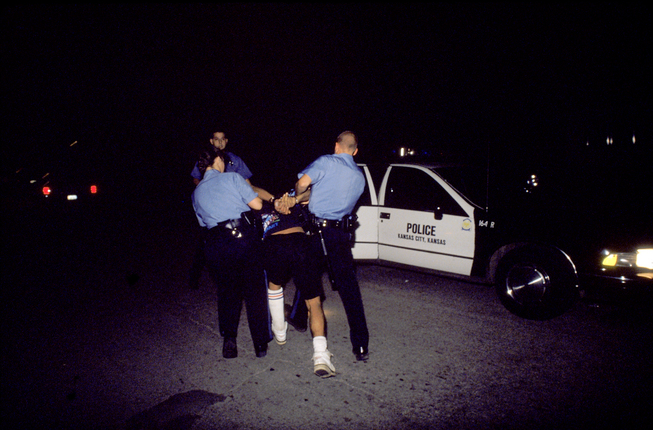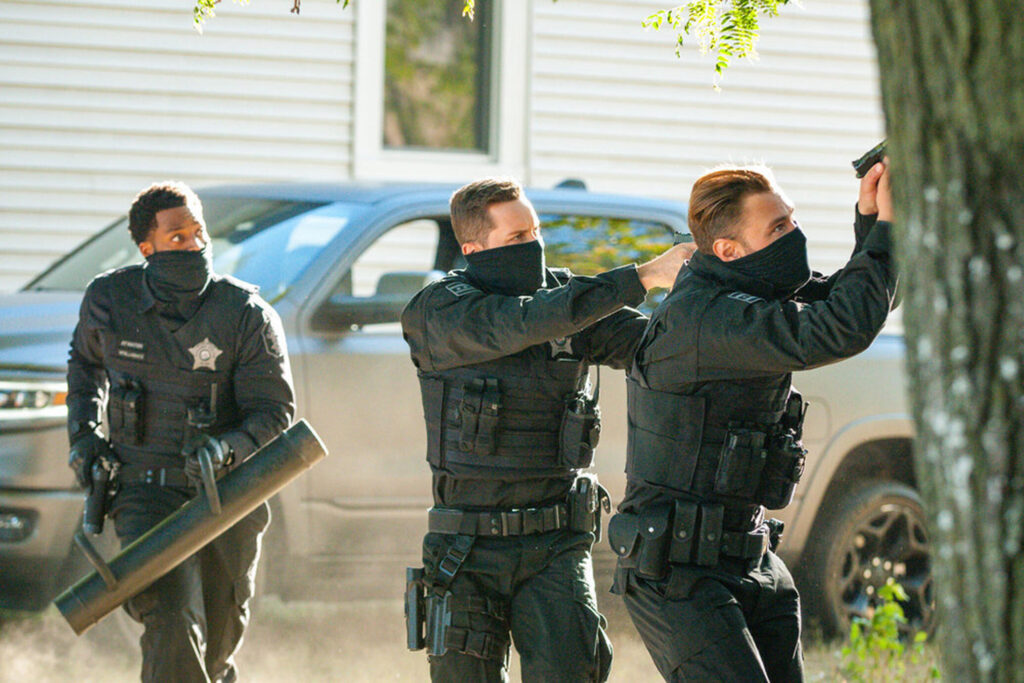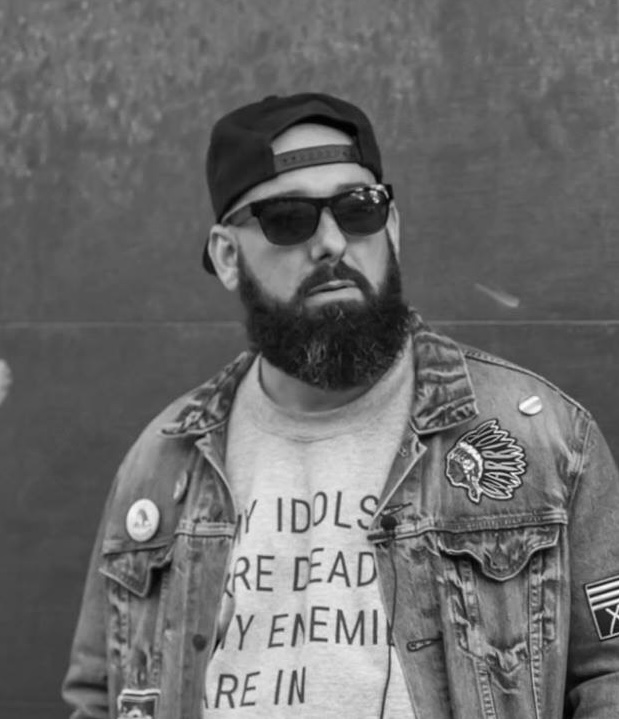
09 Dec Copaganda : An Introduction to How Media Affects Our Perception of Policing and Criminal Justice
BY JOSH LEIDY
This series about copaganda aims to explore how visual media helps shape the way our society views police and policing, and why copaganda is preventing us from progressing to a better society. Telling stories from cops’ viewpoints warps perspective and erases the larger issues that cause crime. If we hope to rid ourselves of pure propaganda pieces for police, our future media needs to stop making police the focus. Too often, this type of media paints marginalized communities as antagonists in need of heavy handed control. These TV shows portray police officers as the only ones standing between civilized society and anarchy, instead of the oppressive force they are in those communities that they are supposed to be serving. The police, along with the media that mythologizes them, are a violent force used against Black and Brown people and other under represented groups.
“Defund the police” became a rallying cry in worldwide protests this year, in a backlash to continued police violence including multiple murders of unarmed Black people. But the idea of defunding, and the even more “scary” language of abolishing police, received harsh backlash, even in communities that policing’s racist origins and implicit biases most adversely affect. I thought about the counterarguments: “We can’t defund police. It’s only a few bad apples;” “What about all the good police who are just doing their job every day? If we take money away from them, they won’t be able to do their jobs effectively.” This made me wonder where these ideas of “good cops” come from; the imagined police officer that goes into work every day without falling victim to the institutionalized racism that is rampant in every part of the criminal justice system. Then a thought hit me. I scrolled through the guide on my cable package and a glaringly obvious sign jumped out. There are a ton of cop shows on TV. All day long. Like whole marathons of them. Just this past weekend in a 48-hour block from 9 am Sunday until 9 am Tuesday, 36 hours were filled with one police procedural or another. And this was just one channel.
Programs that involve law enforcement in one way or another make up nearly twenty percent of all scripted shows on network television. And this doesn’t include “reality” shows like Cops and Live PD that aired new and syndicated episodes regularly until they were both recently canceled in a veiled attempt at addressing the calls from protesters about the larger issue of police misconduct. These shows often excuse all use of excessive force as justified, making their officers look like action heroes who need to be rough with suspects. This ramps up drama, but in the case of Cops or Live PD, these are real people, most often with addiction issues, not one-dimensional “bad guys”. And this is where the problem lies. Police in the media teach us to see all criminals, in both fiction and real life, as stereotypes.

Cops was notorious for showing the featured officers violating rules of conduct, even though part of the agreement with the show was that precincts got to make the final cut. When this happens, the viewing public thinks this violence is normal behavior. This is not only acceptable as an officer, but expected. So when we see video footage of police using force in a situation where it would otherwise be unwarranted, we have already been trained through media to believe that this is what a good cop does. For them to keep “us” safe, violence is the only option. So even with cops making the final cut, this is the message that they want shown; if these gross violations are what make it on the air, imagine what doesn’t. Also, in its later seasons, some featured officers said that Cops was a major factor in them deciding to join the force. So bad policing was their foundation.
Live PD, the cinematic offspring of Cops, was an even more sensationalized look at policing, and quickly became A&E’s top rated show. In what almost feels like propaganda for the never ending drug war, both shows’ arrests were primarily drug centered. With mostly members of marginalized communities and poor whites as the targets for the police, the officers involved get to appear as if they are cleaning up the streets. This enforces the narrative that crime, and drugs especially, are only prevalent in poverty stricken areas. The show gives the cops’ actions a shiny veneer of justice, while they mostly entail arresting addicts and low level offenders. Some officers were even told by the camera crew on Cops after more simple arrests to take suspects out of their vehicles and add heart-to-hearts for dramatic effect so that they could pad time in the segment of the episode. The show props up the idea of these cops as heroes who go out every day to make a difference, when in reality, the empathy displayed is staged.
There’s no one more connected to the police procedural and hero cop idea then Dick Wolf. Wolf is the man behind the Law and Order franchise, including the longest running live action prime time series Law and Order SVU. He’s also behind series like the Chicago trio: PD, Fire, and Justice, as well as FBI and FBI: Most Wanted. Wolf also co-created and produced New York Undercover, a favorite of many of my peers as a kid. This show directly targeted a hip hop generation, and even hired artists to act on the show. But even while centering minority characters as the lead detectives, the core issues still remain. The show displays police as flawed characters who sometimes cross the line, but it clearly claims that it is always done for the greater good. So even a generation growing up in hip hop with a healthy distrust of police were being given spoonfuls of a hero cop narrative to reinforce the idea that police are not the enemy, despite what life experience told us. But even the uber successful Wolf couldn’t escape the new eye being placed on how we consume police in our media.

It’s obvious that writers for police shows directly shape how we see their characters, as well as policing in general. And like many areas in Hollywood, writers rooms are devoid of diverse voices. This is especially prevalent with police procedurals. A Color of Change study that analyzed the diversity of writers rooms across genres found that out of the nine police series they studied, none had Black showrunners, and three had no Black writers at all. You can see how that can create an issue. Stories that directly affect how policing is shown in marginalized communities often have no one in the room to shape that narrative. Just this year, Wolf had to fire writer Craig Gore, who he had picked for his new Law & Order SVU spin off and who has also written for S.W.A.T. and Wolf’s Chicago PD. Gore posed with a large rifle on Facebook saying he would “light up” people out past curfew protesting police violence near his West Hollywood home. He quickly received blowback on Twitter and Wolf was quick to let him go. But Gore and people like him with these views have shaped a narrative for how we see police for decades and produced propaganda for them.
Police procedurals provide an easy story set up and make the drama simple to follow. Our protagonists are the cops who relentlessly pursue justice. All their actions in that pursuit are justified, so we can then excuse anything that we would normally see as dangerous behavior. Centering narratives around only one view point in a complex issue like crime makes it appear more cut and dried then it really is. Even when they do show that the justice system has flaws, the only flaws they focus on are that police have too many rules that restrict them. To truly remake how our media shows police and policing, we need to change the center of narratives and who is telling these stories. The audience is at the will of the story teller. If the story is told mostly through the lens of white men who are pro police, then we will continue to only be fed copaganda. Going forward, we must prioritize visions from people of color and other marginalized segments of society. Their issues and voices are needed to get a full view of the world, and these new voices could more properly identify how the system fails so many and leads to rises in crime.

Josh Leidy is a writer, editor and producer who is also the co-host of the Serious Rap Shit podcast and content creator for Culture Cypher Media. He’s a father of 3 and has been a youth coach and mentor in Philadelphia for nearly 15 years.

Sorry, the comment form is closed at this time.